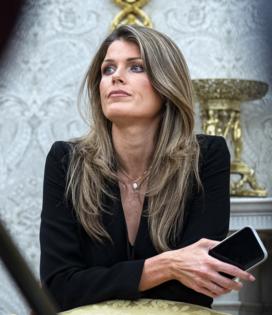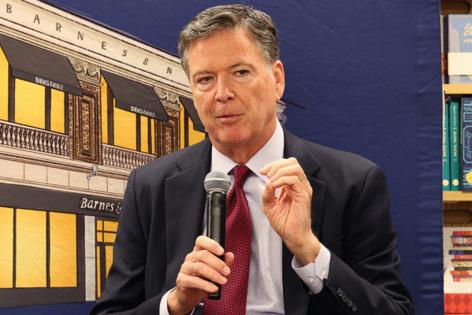DOJ says final Comey indictment wasn't seen by grand jury
Published in News & Features
WASHINGTON — The Justice Department told a federal judge Wednesday that the final indictment against former FBI Director James Comey was never shown to the full grand jury.
U.S. District Judge Michael Nachmanoff questioned federal prosecutors during a hearing about the unusual circumstances when Comey was indicted in September over allegations that he lied to Congress.
Comey, who was fired by President Donald Trump in 2017 and has since been an adversary, has been seeking the dismissal of federal charges related to testimony he gave in 2020. He is one of several of Trump’s perceived foes to have been investigated or indicted recently.
One of the lead prosecutors, Nathaniel Lemons, acknowledged in court Wednesday that the final indictment with the two counts was never officially presented to the grand jury for a formal vote. Comey’s lawyers pounced on the admission as a reason to dismiss the indictment.
The document that was presented to the grand jury included three charges, Lemons said. One of the charges was rejected, after which prosecutors edited the indictment to reflect that only two charges were approved, Lemons said.
‘Paperwork Error’
Lemons chalked the situation up to “a paperwork error” but the judge appeared skeptical and requested that the Justice Department provide more information about the issue.
Michael Dreeben, one of Comey’s lawyers, said the handling of the case means that the final indictment wasn’t valid. He added that the statute of limitations to charge Comey has expired, meaning the case can’t be refiled.
Nachmanoff said he wasn’t prepared to immediately issue a ruling and requested further information from both sides regarding the matter.
The indictment against Comey was obtained by Lindsey Halligan, who was recently appointed as interim U.S. attorney for the Eastern District of Virginia. Halligan had no previous experience as a federal prosecutor or in handling Justice Department cases.
Trump abruptly installed Halligan in September after her predecessor resigned under pressure to bring charges against Comey and another of his perceived foes, New York Attorney General Letitia James.
Nachmanoff also asked Lemons whether prosecutors in the U.S. attorney’s office ever wrote a memo declining to bring charges against Comey.
Lemons said he couldn’t answer the question. He said he had been directed by Deputy Attorney General Todd Blanche’s office to not provide an answer because the information was privileged. The judge appeared skeptical of that response as well.
The case is U.S. v. Comey, 25-cr-272, US District Court, Eastern District of Virginia (Alexandria).
©2025 Bloomberg L.P. Visit bloomberg.com. Distributed by Tribune Content Agency, LLC.










Comments